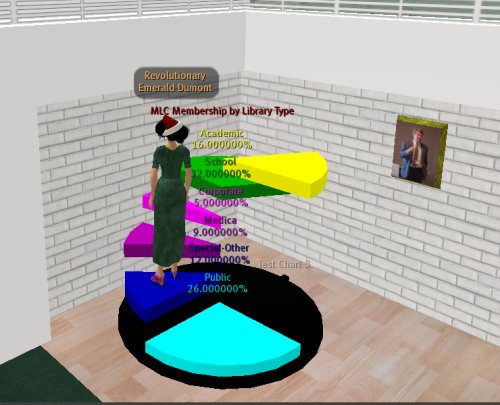A change is happening in how we relate to our documents and data. We’re moving toward using them as social spaces.
At conferences, where the presentations and papers (the “data”) are the ostensible reason for people to be there, I’ve always found the informal exchange (the “social”) much more fun and beneficial. This is now happening online. Here’s some examples of what I mean…
1. Adding a “meebo me” widget to your library home page. Users don’t have to leave the site to connect with a librarian.
2. A “discuss” function in google docs. Ryan, the Other Librarian, and I have been sharing a couple of google docs while we work on a library related something. Last night I noticed the “discuss” tab on a shared spreadsheet and emailed him so we could test it out. While “in” the document, we were chatting, and uploading and amending the document. We could have opened another document and continued our chat there. He’s in Canada, and – while I can pretend to be a jaded, 2.0 kind of gal, used to the way the net has shrunk the world – I still found it novel and it gave me a buzz.
3. A couple of weeks ago I blogged on VLINT about visiting the Michigan Library Consortium’s library in Second Life and climbing all over a 3D graph they had, representing library membership.

4. Distance learning in Second Life. I can imagine a building set up with all the resources needed for a class…links to external sites and cached documents..video presentations available on a player. The difference between that and a tradtional web site is that students can send their avs. to that “place” and see who else is there. While accessing the info, they can discuss their experience of the course and are more likely to ask each other for help once they have made that casual contact. More like the intangible social and academic benefits gained by going to lectures or tutes on campus.
TODAY’S HIPPIE CARD: Up until now


